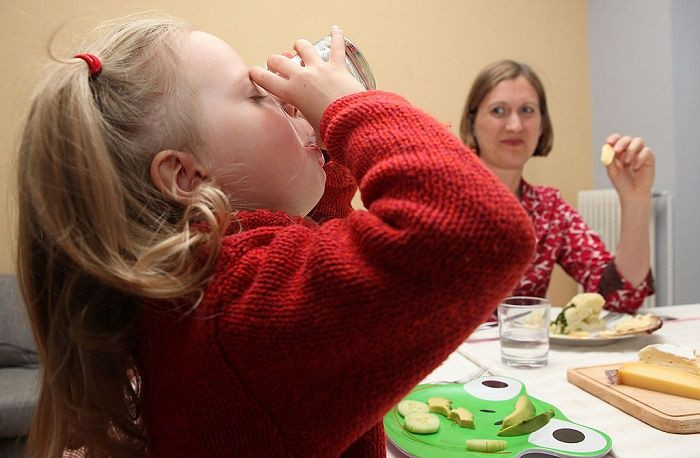Focusing On Family Can Reduce Burden Of Heart Disease And Improve Cardiovascular Health

Heart disease is the leading cause of death in the United States, killing about 610,000 people every year, according to the Centers for Disease Control and Prevention. To combat this, experts recommend following a heart-healthy diet and managing blood pressure, and that people start young. For kids, a recent paper published in the Journal of the American College of Cardiology suggests interventions involving their caregivers may be the most effective approach for promoting cardiovascular health and disease prevention.
“I think the family is a central, critical unit for cardiovascular health promotion, or at least an influence on cardiovascular health throughout the person’s life right from the get-go,” lead author Dr. Rajesh Vedanthan told Medical Daily. “Once the child is born, issues related to how they’re fed, how often they’re fed, what they’re fed, what type of physical activities they’re exposed to… have a major influence on the child and the trajectory they start off on.”
Caregivers’ eating habits have a huge influence on their children’s diets, and studies have shown that a child’s tendency to opt for greasy cheeseburgers over a heart-healthy meal will likely persist into adulthood. And the same goes for exercising, too — kids learn healthy exercise habits from their caregivers. With physical inactivity and an unhealthy diet contributing to obesity at a young age, children face increased risk for diabetes and high blood pressure early on — and both add on to heart disease risk.
For these reasons, it’s especially important for kids to maintain proper health into adulthood. In their review, researchers from the Icahn School of Medicine at Mount Sinai say that family-based interventions, targeting both caregivers and children, were the most effective approaches for promoting healthy lifestyle habits.
Family-based interventions vary, but they are essentially educational programs that take place weekly or monthly, and teach children and their guardians strategies for changing their dietary and exercise habits in order to lower their heart disease risk. One way in which they encourage families to get involved is by having a set dinnertime each night during which home-cooked meals are served. Studies have shown eating in leads to better health outcomes since these meals usually deliver less calories, sugar and fat than restaurant meals.
Parents and caregivers also have an effect on their children’s physical activity levels. They can encourage exercise by leading a less sedentary lifestyle -- higher parental television viewing has been linked with higher television viewing and sedentary time among children -- and by increasing access to safe outlets for children’s activity by providing transportation to extracurricular sports practice or providing equipment, such as a jump rope, that can be used for exercise.
The way in which families cope with and adapt to stress can also influence kids’ heart health. Dealing with stress by getting angry or aggressive can predispose children to adopt unhealthy behaviors, the researchers wrote. Mental or emotional strain can impact heart health by increasing levels of stress hormones, including a drenaline, noradrenaline, and cortisol, which in turn ups heart rate and dilates the blood vessels, causing higher blood pressure — a risk factor for cardiovascular disease.
The researchers said “effective interventions to produce changes in behavior require insight into family dynamics,” and that targeting both caregivers and children will help doctors, nutritionists, and health coaches understand how families communicate and interact with each other in a shared environment. This will ultimately help them develop personalized and more effective interventions that produce favorable changes in behavior.
“The family is an essential linchpin for this type of thing. At some level everyone is exposed to a family, however that may be experienced or defined.” Vedanthan explained. “The family is an essential experience to everyone’s life in general. It is and should therefore be leveraged to help promote healthier things.”
Source: Vedanthan R, Bansilal S, Soto A, et al. Family-Based Approaches to Cardiovascular Health Promotion. Journal of the American College of Cardiology . 2016.



























